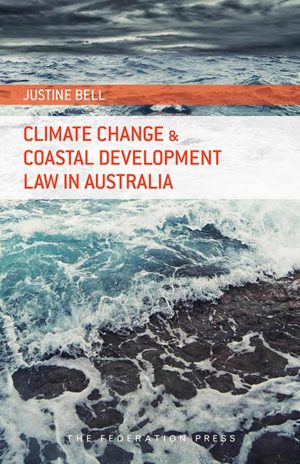Jacqueline Peel’s new book is a very well-written account of the precautionary principle and its application in international and Australian courts. A particular feature of her work is her ability to synthesise and explain complex scientific and legal issues.
In the finest tradition of interdisciplinary scholarship, Peel moves beyond the lawyer’s narrow world view and draws on the experience and knowledge of other disciplines including ecological science, social science and risk assessment. …
The Precautionary Principle in Practice is well written and will prove useful to academics and practitioners alike, especially because it brings together in one publication many real world examples of how the precautionary principle has been applied. The only real criticism I can make is that the discussion relies largely on case studies from Australia and New Zealand. … This criticism does not outweigh the amazing achievement this publication represents.
The Precautionary Principle in Practice is likely to be regarded as one of the foundation studies on the implementation of the precautionary principle.
Alternative Law Journal, Vol 31(3), Sep 2006
Peel’s book is one that I am sure will challenge and inform enormously “scientists, academics and students”. The latter I take to be tertiary, although the lonely few secondary teachers presenting integrating approaches to learning … amid the senior school silos will find rewarding professional reading, material to extract for their students’ use – and something to whet the appetites of the constructively argumentative.
The experience of a close reading of “The Precautionary Principle in Practice”, which is where the Earth and we need it to be, was certainly an informative one for me – and suggested more sources to pursue than I have years to do so. … I recommend you try it!
Australian Journal of Environmental Education, Summer 2006-07
Part 1 is extremely easy to read and gives a clear account of scientific uncertainty that would be of use to anyone in the field….
The book deals with the precautionary principle in Australian legislation providing an in-depth analysis but it does not limit the application. …What the book makes very clear is that the precautionary principle requires a greater critical examination of scientific evidence and is not the retreat from reason that some critics claim.
Geography (UK), Vol 91/2, 2006
While it is easy to point to areas where one could quibble over detail, these in no way detract from what will assuredly become an essential reference work, one which should become mandatory reading for the legal profession, the expert witnesses they brief, decision-makers, and anyone else with an interest or involvement in environmental decision-making.
The chapter explaining the vagaries of scientific uncertainty and ‘non-scientific’ uncertainty alone is worth the price of the book, while the simple, almost hidden from view ‘how to’ section for decision-makers is a gem.
Resource Management Journal (NZ), April 2006
This book is primarilty directed at clarifying the precautionary principle in environmental and health law. However, it would be useful for any lawyer seeking to tease out the issues where expert evidence is complex, conflicting or inadequate and values are diverse.
Law Institute Journal (Victoria), Vol 80(3), March 2006
For those working in the public health and environmental decision-making fields, the book is a helpful contribution to learning in the area. … very readable and very useful.
Law Letter (Law Society of Tasmania), Issue 98, Autumn 2007
The author is committed to a case study approach that enriches our understanding of the actual practice and future potential of the precautionary principle. Her particular choice of case studies serves this purpose very well, in addition to making a very topical read. … Peel’s book makes a valuable contribution to our understanding of the precautionary principle both as it is currently being implemented and as a procedural principle capable of further development within a framework of consistent principles. The discussion of scientific uncertainty and the case studies were, for this reader, the most enjoyable aspects of the book.
Dr Philippa England, (2006) Queensland Lawyer 30
This is an outstanding contribution to the literature on the precautionary principle … its principal theme – that there is a need for a more critical and realistic approach to decision-making in the face of scientific uncertainty – is directed specifically at environmental and health authorities, and it is to be hoped that the book will command serious attention from these quarters.
Professor Rob Fowler, University of Adelaide
The analysis of scientific uncertainty and the potentiality for legal uncertainty made very interesting reading… The discussion of particular issues, first from the point of view of the scientific evidence and then from the point of view of the law, is particularly helpful.
Professor Douglas Fisher, Queensland University of Technology
An extremely useful book for practitioners and regulators within the environmental and health fields, and especially for those who work in a decision-making capacity. The book provides an excellent background to the precautionary principle, a thorough analysis of its role in policy and law and includes a variety of case studies demonstrating the implementation of the precautionary principle and the challenges associated with this
Mandy Elliott, Dept of Sustainability & Environment, Victoria
There are few issues issues in international law today that are more important – or controversial – than the status and effect of the precautionary principle. Jacqueline Peel’s broad, balanced and rigorous assessment of the legal and policy issues provides a lens through which the different approaches to regulatory precaution can be judged. Her contribution is significant and welcome.
Professor Philippe Sands, University College, London
A lucid and insightful overview of the law and policy of regulatory precaution, enriched by illuminating case studies.
Professor Richard B Stewart, New York University




